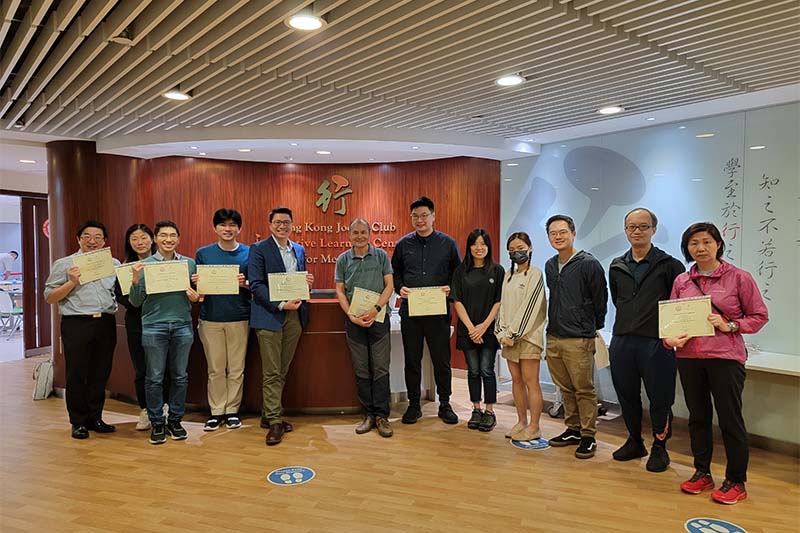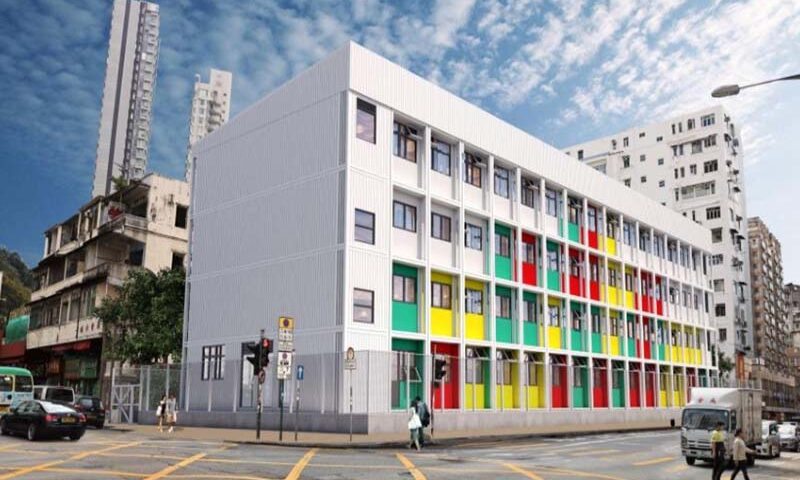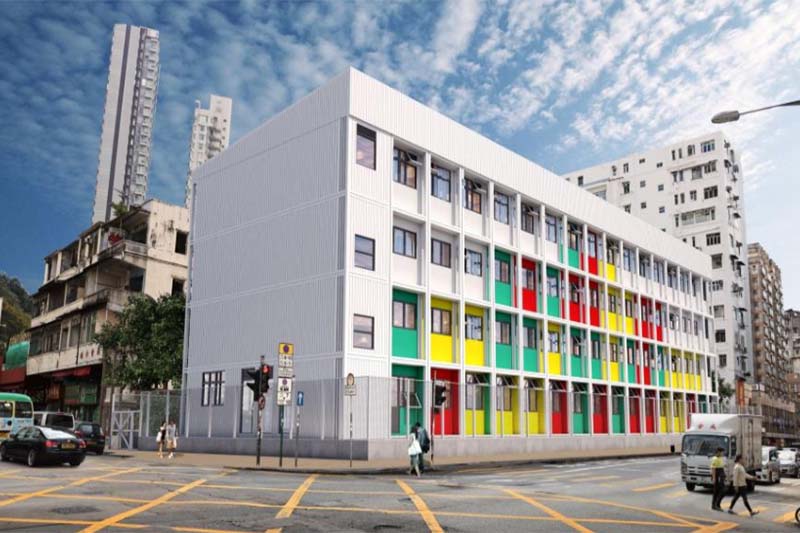
Nurturing Medical Professionals to be Pioneer in Medical Education Research
16 November 2023
Thailand wants to build a brand new shipping route. Why isn’t China buying?
27 November 2023Benefits and Challenges of Hong Kong’s First Transitional Social Housing Project

Principal investigator: Prof CHAN Siu-ming (Department of Social and Behavioural Sciences)

Nam Cheong 220 was the first Modular Social Housing Project in Hong Kong to adopt “Modular Integrated Construction”. (source: https://www.socialhousing.hkcss.org.hk/en/node/58)
Hong Kong’s home prices have always been beyond most people’s affordability. Rent also takes up a large percentage of the average earnings in Hong Kong. For those low-income families who cannot afford high rents and are awaiting public rental housing, they choose to live in subdivided units to save the housing cost. However, these subdivided flats are notorious for their substandard conditions, poor hygiene and fire and security hazards. To provide affordable housing to tenants who have urgent living needs, the government implemented a policy of transitional social housing (TSH) in 2018 to enhance the livelihood of low-income families.
Professor CHAN Siu-ming, Assistant Professor of CityU’s Department of Social and Behavioural Sciences, has been conducting policy research and surveys related to vulnerable groups facing poverty, housing problems, and other community issues in the past decade. Recently he published his research findings about Hong Kong’s first TSH project Nam Cheong 220 (NC220) in the Sustainability journal, entitled “Social Impact Assessment of Transitional Social Housing and Service Interventions for Low-Income Families: The Case of Hong Kong”. The study aims to evaluate the social impact and effectiveness of the project, and quantitative data were collected from individuals in three stages between 2020 and 2022.
NC220 is the first TSH to adopt the modular integrated construction method on idle land in Hong Kong. It was initiated by The Hong Kong Council of Social Services (HKCSS) and operated by Tung Wah Groups of Hospitals (TWGHs). NC220 is located at 202 to 220 Nam Cheong Street in Sham Shui Po, built as one four-storey block with 89 units, which include 35 one-person household units (130 square feet (sq.ft.)), 29 two-person household units (179 sq.ft.), 23 three-person household units (224 to 292 sq.ft.), and two accessible units (293 sq.ft.). Each unit has a toilet and bathroom, an air conditioner, an electric water heater, and an open kitchen with an electric cooker. The project started in August 2020, and 94 households (175 people) have moved in.
Commissioned by the Good Impact Assessment Institute, Prof Chan worked with the HKCSS to conduct a social impact assessment (SIA) to assess the value and social impact of the NC220 project and evaluate the overall effectiveness of TSH and similar service interventions. Data were collected through online or paper questionnaires from August to October 2020 (T0), July to August 2021 (T1) and April to July 2022 (T2), i.e., a total of three times, where T0 was for pre-test and T1 and T2 were the post-tests. To implement a multifaceted social impact assessment, this study assessed the socioeconomic situation, housing circumstance, social capital, mental health, and family support of the residents.
According to the assessment results, the TSH project significantly improved the housing circumstances of residents, resulting in lower housing expenses, better conditions, and larger living spaces. However, there are also challenges and room for improvement. Prof Chan recommended the government to increase the number of TSH units in various districts and extending the tenancy period to help alleviate grassroots housing problems. Pest and noise were also commonly reported as community problems, showing that there is a need to improve TSH environments and site selection. In addition, tenants of NC220 were concerned about the lack of public space, including space for drying clothes and recreational purposes. It was recommended that future TSH projects could provide more space to hold social activities, utilise residents’ skills, and help them build community capital. The government, NGOs, or charity foundations can subsidise future TSH projects to create more community-based internships, volunteer subsidies, and job training services for low-income residents.
Overall speaking, the TSH programme not only acts a service model to inspire other local housing programmes, such as Light Public Housing and Public Housing, but also serves as a valuable model for tackling global poverty, particularly in densely populated urban areas.
Achievement and publication
Chan, S-M, Wong, H, Tang, Y-K & Li, S-N 2023, ‘Social Impact Assessment of Transitional Social Housing and Service Interventions for Low-Income Families: The Case of Hong Kong’, Sustainability, vol. 15, no. 15, 12061. https://doi.org/10.3390/su151512061
